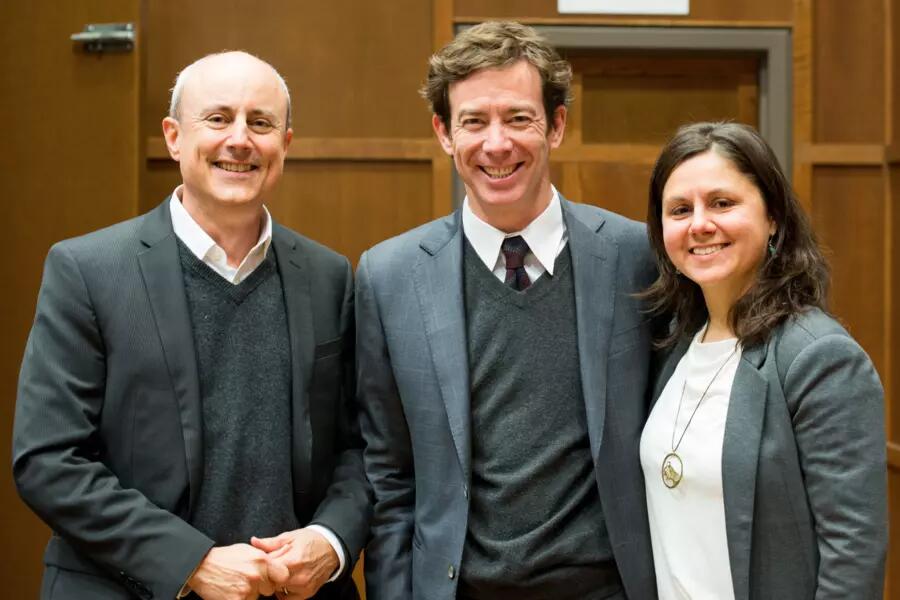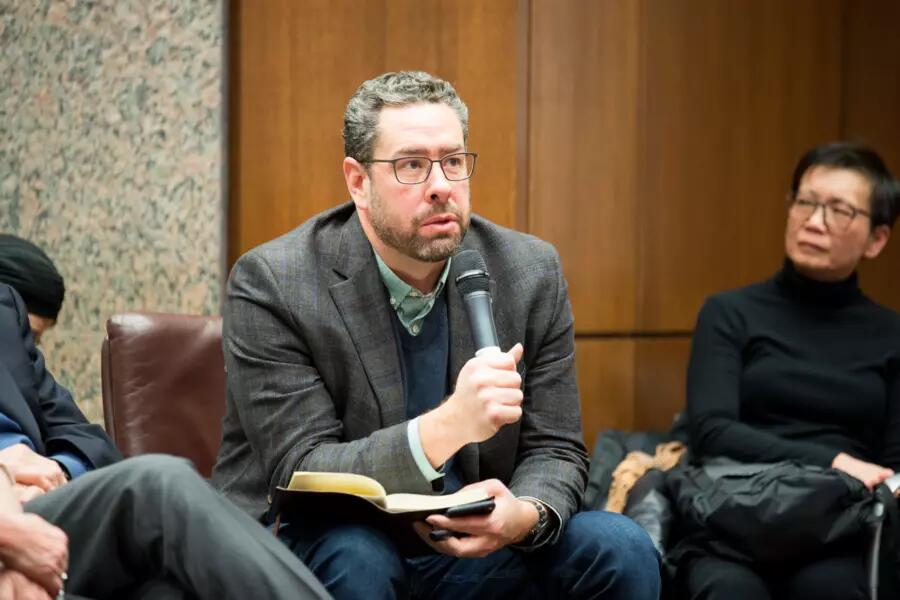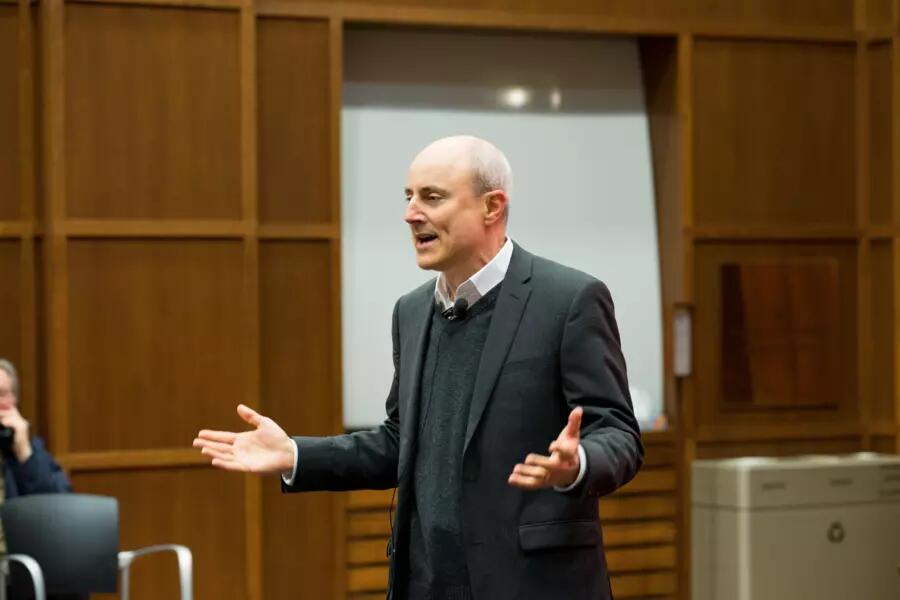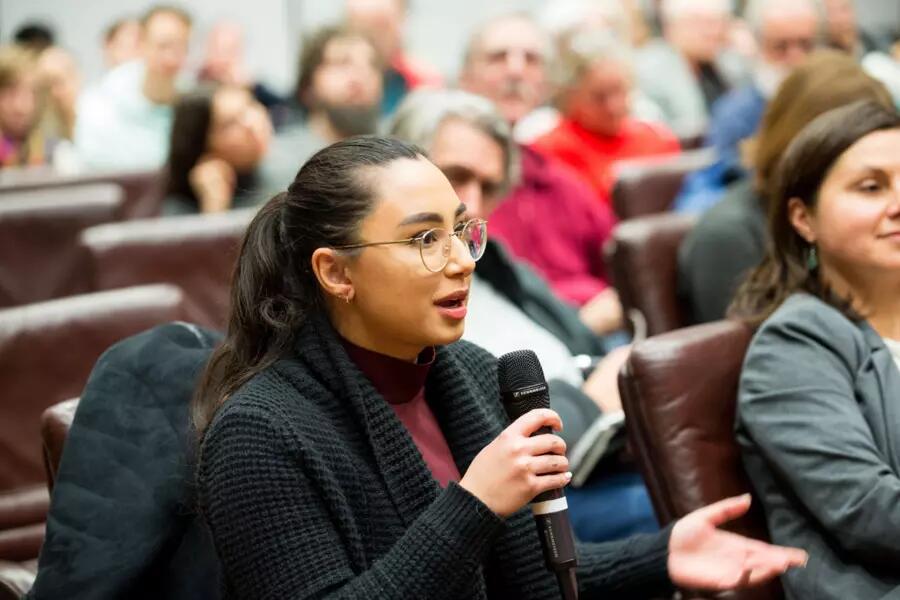By Aloysius Wong
The following is compiled using material from both the Woods lecture and an interview that took place earlier in the afternoon.

Michael Ross is a Professor of Political Science at the University of California Los Angeles. One of his major areas of research is energy politics, and his lecture last Thursday covered, as titled, The Past and Future of Carbon Politics.
I spoke with him before his talk on January 31st and asked him a few questions about his background and his research. He described to me how he was 12 years old during the 1973 oil crisis. He remembers talk about gas lines, Organization of the Petroleum Exporting Countries, and invasions in the Middle East, so from an early age he became aware that oil was an incredibly important force in global politics. In his 20s, he worked for Greenpeace for a few years and became active in the environmental movement. After completing graduate studies at Princeton, he studied natural resources in politics, returning to the topic after several years.
I asked him why he decided to focus on carbon politics specifically. He responded, “It’s an excuse to study lots of interesting places—countries all around the world, including Latin America, the Middle East, Africa, Russia, and Central Asia. This gives me the opportunity to learn about different places that are otherwise beyond the normal scope of political science researchers.” He went on to add how much of a central topic it is: it connects to a vast amount of conflicts and repressions, as well as to central questions of world order and political and economic power. Finally, he described how it’s important to study the diverse repercussions of the world trying to move off of fossil fuels and carbon more generally, and how this will affect the actions of various actors on the global stage.
“We’re at this critical juncture in addressing climate change where if we really hope to avoid exceeding the 1.5 or 2 degree limit by 2050, we’re gonna have to dramatically change our lives on fossil fuels. I don’t know if it can be done. Because so many governments and societies depend on fossil fuels for their economies, shifting away from this will have far-reaching consequences. This makes this research especially timely,” said Ross.
“There has been a focus on technological breakthroughs, alternative fuels, and other goals, but not enough appreciation for how difficult it will be to sever our ties with the world of fossil fuels. We have an idea of where we need to be but not how to get there—and to the extent that we do get there, there will be deep implications for a part of the world that many of us in the richer countries in the west don’t like to think about.
“You could name three dozen countries that are deeply dependent on fossil fuels, and this isn’t going to be an easy transition. Even if you get the technological breakthroughs, you might be hoping for or get the governments of the wealthiest countries on board, this is going to be a potentially difficult period that we’re entering.”
In his lecture later that evening, Professor Ross also covered how while transitions between different energy sources have occurred, in absolute terms, energy consumption has only risen. He discussed the importance of Texas and the Southern US in the early days of carbon politics, and the implications of oil becoming a government industry in many countries.
A notable theme to the discussion was his viewpoint on difficult alternatives to fossil fuels. He spoke about radical approaches including solar radiation management, climate engineering, and carbon removal from the atmosphere. “People are scared to even consider geoengineering,” he said, “and while it’s a frightening idea, to me it’s not as frightening as a future world that we’re currently heading to with warmer oceans and warmer climates, and ecosystems around the world subject to rapid and unpredictable change.”



The Q&A session that followed included a question from 4th year PCJ student and PCJ Society co-president Muriam Fancie, who asked Professor Ross about his opinion about international climate accords such as the 2015 Paris Agreement. He said that, unfortunately, he hasn’t seen much of an impact; however, they are one of many steps in the right direction. Another interesting question led to a discussion on nuclear energy, to which Ross used the analogy: “If you’re trapped in a house that catches on fire, first you wanna put the fire out; but if you can’t put it out and your only fire extinguisher has noxious fumes, you’re still gonna have to put the fire out. You have to deal with the most urgent problems first and make judgements about the costs and benefits about different strategies.”
While the lecture ended on a rather somber note, the final question of our interview was on how current students should guide their studies so that they can later tackle these issues in some capacity. He stressed that climate change is such a large issue that there are many ways to make a difference, many skills to employ to do so. He emphasized that being passionately concerned is necessary but not sufficient; we also need to bear the most advanced skills we have available to us. “I encourage people who want to make a difference to find what you’re best in, invest in those skills and use them in ways that will help us address this challenge.”
Photos by Aloysius Wong